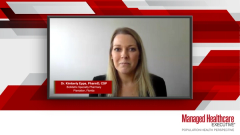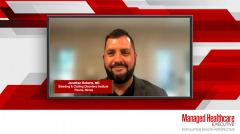Optimizing Hemophilia A Medication Use: Insights From Specialty Pharmacy
Specialty pharmacies prioritize minimizing drug waste in hemophilia A treatment, aiming for near-complete dosing while adhering to payer limits and addressing potential drug hoarding among patients.
Kimberly Epps, PharmD, CSP: I would say that drug waste is always a concern. These are high-dollar medications. They are life-saving. So we do everything we can to make sure that we are optimizing patient doses. As a specialty pharmacy, our first job is to make sure that we take care of the patients. We get as close to that 100% of a dose as we can. Most doctors write for +/- 10% because each assay is specific. So we try to get as close as we can to 100% of the dose, as our requirement to payers and as URAC [Utilization Review Accreditation Commission] and ACHC [Accreditation Commission for Health Care] accredited we try not to go over. A lot of payers require us to stay below 1.5%. As an overall goal, we try to stay below 3% over the prescribed dose, even though the prescription is written +/- 10%. This just keeps the patient at a good place, as far as factor levels go, and controls the cost for the payers. So that is really our responsibility to reduce waste. Emicizumab has brought a whole new level to this. A lot of the time, the doctors will write certain bottle sizes, for certain patients. There are algorithms out there that can make sure that we are optimizing the emicizumab dose to reduce waste. So we do that at our pharmacy to make sure that we’re doing the best we can to uphold our end of the bargain to payers, and that requires an outreach or an intervention to the doctor especially if they’ve written for a certain vial size. We can outreach and say, “Hey, if we can change to this vial size, we can reduce the waste and reduce the costs a little bit that we are charging to the insurance.” At that point, it’s up to the doctor, if they’ve got reasoning why they want certain vial sizes, they can always decline that intervention. But we do use those algorithms to make sure that we’re keeping the patient and the payer in mind at all times.
This community has been through a lot. So drug hoarding or keeping more doses than you might need is always going to be a problem, especially with our older patients that have seen a lot. You worry about it a lot less with the newer patients and the patients that maybe don’t have a genetic history. They haven’t seen their father or someone go through this. But for a large majority of our patient base, hoarding, drug waste, and making sure we’re using down the product on hand before we change the product or before we dispense another round of prophylaxis is top of mind. Again, part of the clinical assessment that we do on each bill is clinical utilization. We talk to the patient about how many doses they have used. We have those MicroHealth logs or the written logs from the patient, so we can match up what the patient says they have used to what they’ve actually used, to make sure that we are, again, upholding our end of the bargain to payers that the patient is not hoarding. We have very little control over what they have prior to coming on service with us. So it’s something that we can never be 100% sure of, but as I said, some payers have in place that we put a clinician into the house, we make sure that there’s adequate storage, they are not oversupplying, and that they have a clean space to infuse. So that helps us in those instances to be more aware of what the patient has and what they need. I don’t think you’re ever going to do away with excess doses. There’s always a little bit of fear, and I think anybody would understand that. If you weren’t sure if your product was going to be around or your assay was going to be around…and that’s your life-saving medication, I can understand the tendency to want to maybe have a few more doses. But it’s our job as the pharmacy to make sure that we are minimizing that to the best of our abilities. And we never auto-ship [to] a patient. Absolutely not. Not even if the patient requests that. We have to speak to each patient on dispense. These are such high-dollar medications, we need to make sure, again, [that] we are upholding our end of the bargain to the payers and the patient.
Transcript edited for clarity.
Newsletter
Get the latest industry news, event updates, and more from Managed healthcare Executive.

























